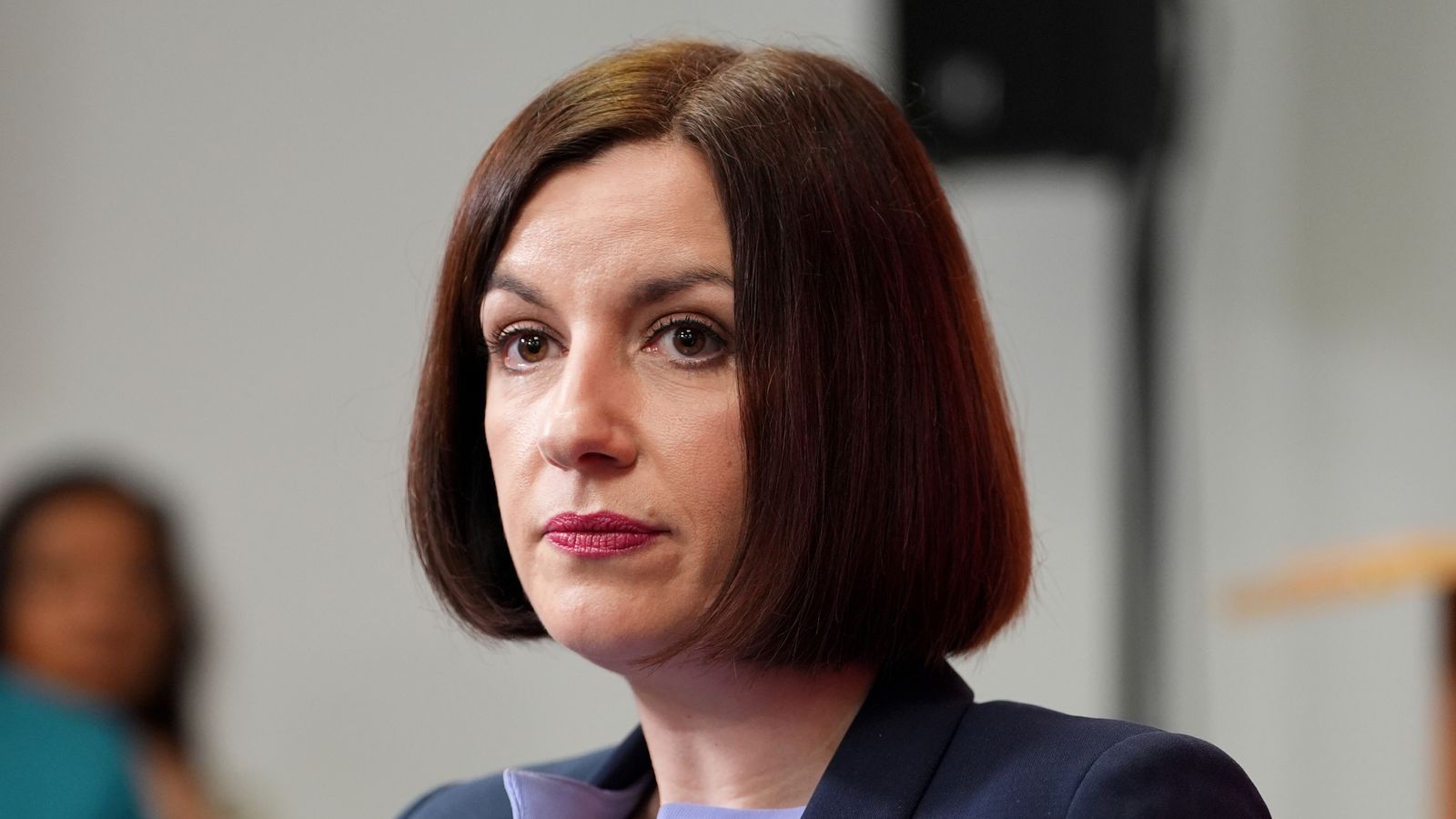Politics
Bridget Phillipson is a ‘Marxist’ who wants more state control of academies, headteacher Katharine Birbalsingh says

Katharine Birbalsingh Accuses Education Secretary of Centralizing Power
Katharine Birbalsingh, renowned as Britain’s strictest headteacher, has sparked controversy by accusing Education Secretary Bridget Phillipson of acting like a Marxist. This accusation stems from Phillipson’s efforts to centralize control over academies, which Birbalsingh believes undermines their autonomy. As the head of Michaela Community School in London, known for its rigorous discipline and high standards, Birbalsingh met with Phillipson and expressed her concerns about the government’s move to increase state control. She argued that this centralization deprives academies of the freedom to tailor education to their communities’ needs. Birbalsingh emphasized her belief in preserving these freedoms, which she sees as crucial for innovation and localized approaches in education.
A Critique of Proposed Reforms
Birbalsingh criticized the proposed reforms in Phillipson’s education bill, which would require academies to adopt the national curriculum and standardize teacher qualifications. She argued that these changes would strip academies of their ability to innovate, pointing out that academies currently have the flexibility to set their own pay and curriculum. Birbalsingh fears that these reforms will adversely affect the quality of education in successful schools by reducing their ability to adapt to the specific needs of their students. Her concerns reflect a broader debate about the role of centralization versus autonomy in education.
The Impact on Schools and Students
Birbalsingh highlighted the potential negative impact of these reforms on parents and students, particularly those seeking high-quality education. She noted that the reforms could lead to fewer places in successful schools, reducing their funding and teaching staff. This, she believes, would harm the very schools that have proven effective, undermining their capacity to serve their communities. These concerns are shared by many school leaders, who are troubled by the loss of autonomy and the potential decline in educational quality. Birbalsingh’s arguments resonate with parents and educators who value the unique approaches of high-performing schools.
Government Response and Broader Debate
Phillipson and the government have defended the reforms as necessary to ensure a consistent and high-quality education across all schools. They argue that standardizing the curriculum and teaching qualifications ensures that all students receive a fair and equal education. However, Birbalsingh and other critics maintain that this approach stifles innovation and fails to recognize the diverse needs of different communities. The debate reflects deeper tensions within the education system about the balance between accountability, equity, and local autonomy. Birbalsingh’s critique has sharpened these tensions, pushing the issue to the forefront of educational policy discussions.
The Bigger Picture of Education Policy
The clash between Birbalsingh and Phillipson highlights broader disagreements about the direction of education policy, particularly regarding the role of centralized authority. Birbalsingh represents a perspective that values local control and innovation, while Phillipson’s approach seeks to ensure consistency and equity through centralization. This debate is further complicated by the varying needs and challenges faced by different schools and communities. Policymakers must navigate these complex issues to create an education system that balances accountability with flexibility, addressing the needs of all students while allowing schools to innovate. The outcome of this debate will shape the future of education for millions of students, making it a critical issue for policymakers and educators alike.
Conclusion and Next Steps
As the Children’s Wellbeing and Schools Bill progresses through Parliament, the debate over academy freedoms and centralized control is likely to intensify. Birbalsingh’s accusations have brought attention to the concerns of school leaders and parents who fear these reforms will harm the quality of education. Meanwhile, the government continues to argue that centralized standards are essential for ensuring fairness and excellence. The next steps in this process will involve further parliamentary debate and consideration of the bill’s implications for schools and communities. The outcome will depend on how policymakers balance these competing priorities in the best interests of students and society.











